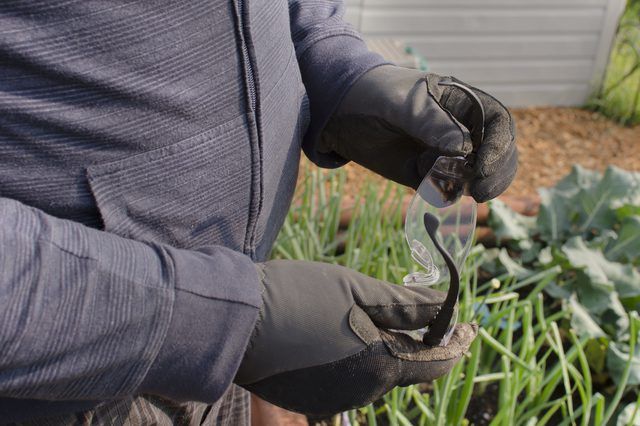Bulbs
Flower Basics
Flower Beds & Specialty Gardens
Flower Garden
Garden Furniture
Garden Gnomes
Garden Seeds
Garden Sheds
Garden Statues
Garden Tools & Supplies
Gardening Basics
Green & Organic
Groundcovers & Vines
Growing Annuals
Growing Basil
Growing Beans
Growing Berries
Growing Blueberries
Growing Cactus
Growing Corn
Growing Cotton
Growing Edibles
Growing Flowers
Growing Garlic
Growing Grapes
Growing Grass
Growing Herbs
Growing Jasmine
Growing Mint
Growing Mushrooms
Orchids
Growing Peanuts
Growing Perennials
Growing Plants
Growing Rosemary
Growing Roses
Growing Strawberries
Growing Sunflowers
Growing Thyme
Growing Tomatoes
Growing Tulips
Growing Vegetables
Herb Basics
Herb Garden
Indoor Growing
Landscaping Basics
Landscaping Patios
Landscaping Plants
Landscaping Shrubs
Landscaping Trees
Landscaping Walks & Pathways
Lawn Basics
Lawn Maintenance
Lawn Mowers
Lawn Ornaments
Lawn Planting
Lawn Tools
Outdoor Growing
Overall Landscape Planning
Pests, Weeds & Problems
Plant Basics
Rock Garden
Rose Garden
Shrubs
Soil
Specialty Gardens
Trees
Vegetable Garden
Yard Maintenance
Weed Killer in Vegetable Gardens
Weed Killer in Vegetable Gardens. Killing weeds in a vegetable garden takes a lighter hand than in a flowerbed. Not all herbicides are safe to use around vegetables, and some work on only certain types of weeds. With chemical herbicides, read the manufacturer's labels carefully to ensure the product is safe for the vegetables you're growing and...
Killing weeds in a vegetable garden takes a lighter hand than in a flowerbed. Not all herbicides are safe to use around vegetables, and some work on only certain types of weeds. With chemical herbicides, read the manufacturer's labels carefully to ensure the product is safe for the vegetables you're growing and will knock out the weeds you're struggling with. Always wear protective gear and clothing when using garden chemicals.
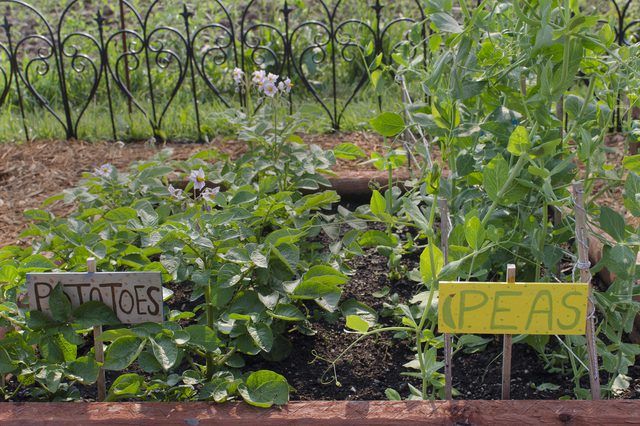
Before purchasing a weed killer, determine what kind of weeds are invading your garden. Grassy weeds typically look like grass, sometimes with taller blades or long runners that spread quickly. Broadleaf weeds have wider leaves, often that spread out nearly flat on the ground or on a vine. Choose a weed killer that is safe for the vegetables near the weed and is specific to that weed type. When you're not sure or have both types of weeds, carefully use a nonselective weed killer, which kills nearly any type of plant.
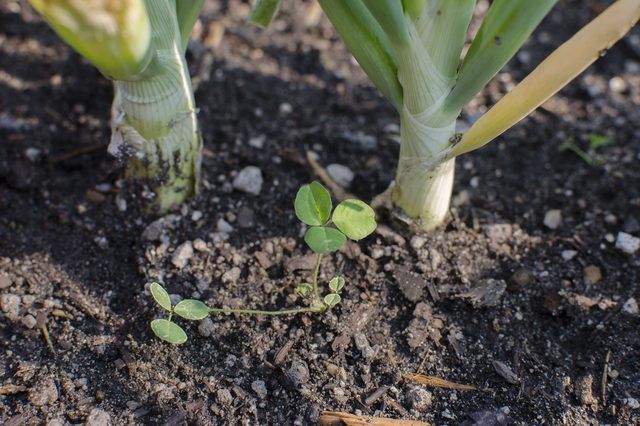
Even with herbicides noted as safe around your vegetables, protect your plants by covering them with plastic or cardboard while you spray the weeds and until the herbicide dries. Choose a day without wind to spray the weeds to reduce the chances of herbicide drift, which occurs when droplets float to nearby plants.
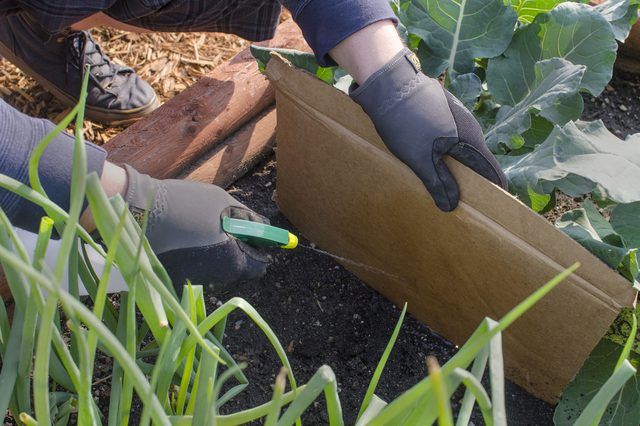
When you prefer to avoid chemicals around your vegetables, some organic solutions function as nonselective herbicides. You must still protect your vegetable plants from drift; these products can kill your vegetables, too. Pouring boiling water over the weeds burns the leaves and kills them, leaving the weed unable to feed itself through photosynthesis. Distilled vinegar, which contains acetic acid, burns the protective coating off the leaves, helping to kill the weeds. It works best on hot, sunny days, when the sun helps the vinegar harm the weeds. If it rains within 24 hours of application, reapply the vinegar as soon as the leaves are dry.
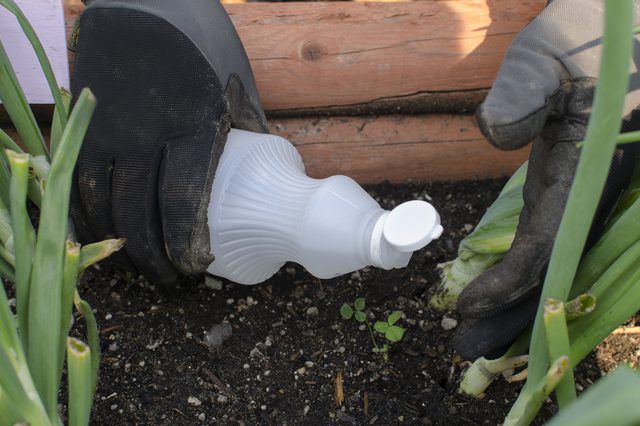
Several chemical options are safe to use in your vegetable garden, but always read the manufacturer's label to ensure the herbicide you choose is safe for the food you are growing. Don't use one of the most common nonselective herbicides, which contains glyphosate. It's approved only for use in vegetable gardens before the seedlings emerge, not after the plants start to grow. Instead, use a nonselective herbicide containing pelargonic acid, which is safe around many vegetables such as cabbage (Brassica oleracea) and carrots (Daucus carota). For broadleaf weeds, use a weed killer such as bentazon, which works around such vegetables as beans (Phaseolus spp.) and peas (Pisum sativum). Defeat grassy weeds with products such as sethoxydim, which is safe around a variety of vegetables including broccoli (Brassica oleracea var. italica) and sweet potatoes (Ipomoea batatas).
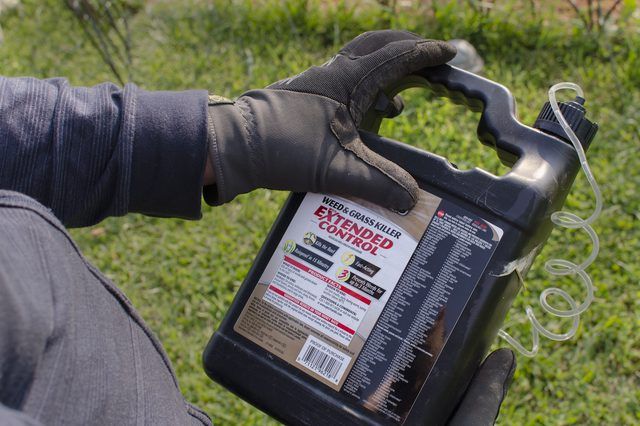
Whether you choose an organic or chemical option, protect yourself, your pets and your family from harm. Wear protective clothing including long sleeves, gloves, long pants and closed-toe shoes, and cover your face with safety goggles and a dust mask. Keep your children and pets away from the vegetable garden until the herbicide has dried completely, or longer if recommended by the manufacturer.
